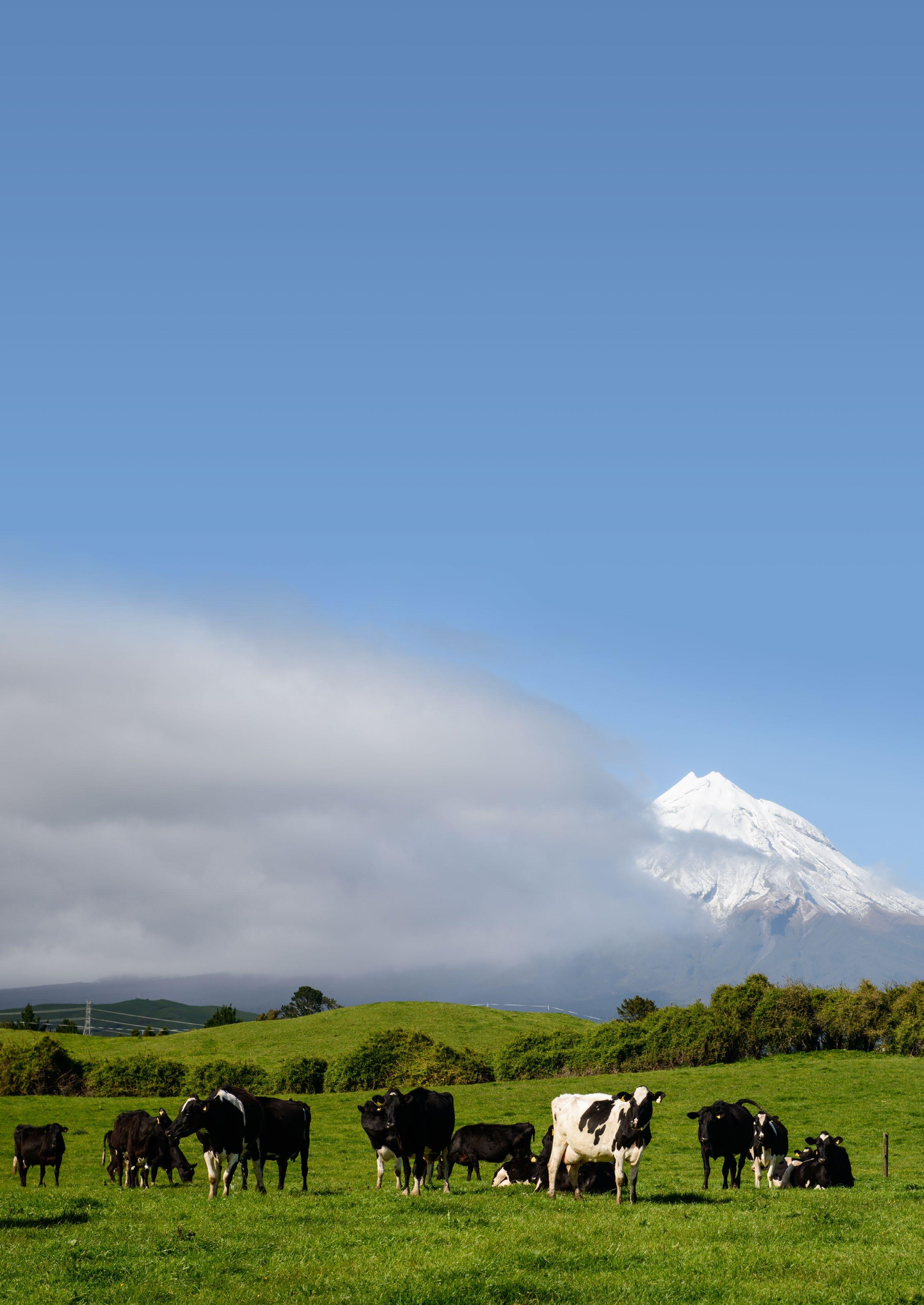
3 minute read
Farm emissions levy proposed
A farm-level levy/rebate scheme that puts a price on emissions has been proposed to the Government as the best way to reduce agricultural methane and nitrous oxide emissions.
The scheme would see dairy farmers paying on average 1 cent per kilogram of milk solids ($ .01/kg MS) in the initial stages, according to the report from the Interim Climate Change Committee (ICCC), impacting the bottom line for all agribusiness, including PKW. But the incorporation is welcoming the recommendation, says Mitchell Ritai, General Manager Shareholder Engagement, as part of its commitment to manage climate change in the Kaitiakitanga Strategy.
“We take our role as kaitiaki of our whenua very seriously and believe that many other farmers do as well” says Mitchell. “While there seems to be a general agreement on the outcome, knowing how it will be achieved will require further debate and discussion with all who will be impacted.”
The ICCC was asked by the Government to find a solution to the issue of agricultural greenhouse emissions (mainly methane and nitrous oxide), which make up around 48% of New Zealand’s total reported greenhouse gas emissions. Reducing greenhouse gases is seen as crucial to achieve the targets set by the Paris Agreement in 2015 to limit global warming to well below 2 degrees above pre-industrial levels. Globally, the world is not on track to achieve this target.
The ICCC has recommended a 5 year period to implement the scheme while also introducing an interim step where emissions will be priced through the Emissions Trading Scheme (ETS) at processor level by 2020. It is anticipated that a phased-in approach will provide time for farmers to collect and measure the required data to report on their annual emissions. The levy/rebate scheme has been mooted as a simple way of including agriculture in the existing ETS without having to trade units, and farmers will initially receive a 95% free allocation. This will help minimise any social impact from increased costs as well as incentivise farmers to reduce levy costs through reducing on-farm emissions.
While compiling the report, and its recommendation, the ICCC highlighted that any policy must fulfill Te Tiriti o Waitangi principle of partnership and good faith with iwi and hapū and recognise the unique characteristics of Māori land.
The ICCC also recommended that any board or committee established to manage the funds generated by a pricing policy, estimated at between $47 and $95 million per year over the first decade, includes representatives from the agriculture sector and iwi/Māori landowners to ensure effective co-governance.
“It is proposed that the money raised by a pricing policy is put into an Agricultural Emissions Fund for recycling back into programmes that will directly help farmers to transition to farm-level pricing in 2025. A portion of the fund will be used to enable owners of Māori land to equitably engage in this process and access opportunities,” says Mitchell. “While we welcome the Government’s plans, we also acknowledge that there are still some areas that need further attention; we are looking forward to the Government’s response from the consultation round.”










